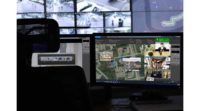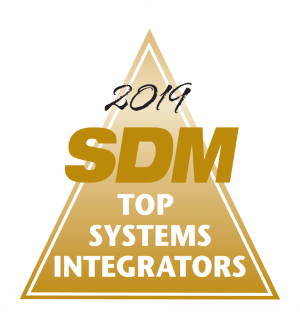Interface Shares Its Top Security Industry Predictions for 2021

Interface Security Systems, a managed service provider delivering business security, managed network, UCaaS and business intelligence solutions to distributed enterprises, today shared its top predictions for the physical security industry.
2021 could prove to be almost as turbulent for the security industry as 2020. In the earlier part of the year, Interface expects that the industry will continue to grapple with the fallout from COVID-19 with possible disruptions to the equipment supply chain. However, assuming the industry can its critical workforce healthy and an effective vaccine is successfully deployed in Q2, the situation could improve very quickly. If restaurants, retailers and sporting/entertainment venues reopen en masse, and formerly vacant commercial buildings fill back up with workers in late Q2 and early Q3, the new challenge, particularly for systems integrators, will be to keep pace with the pent-up demand. The reopening of America will require the deployment of unprecedented security resources, from servicing and refreshing existing systems to the deployment of new solutions. The second half of 2021 could set the stage for the biggest demand shock the security industry has ever experienced.
Interface also predicted that while the security industry’s initial foray into analytics is largely over-promised and under-delivered, today’s artificial intelligence (AI) and machine learning are about to fundamentally change the core value proposition of the physical security industry. Security technology is no longer seen as devices to keep people and property safe, but it is finally becoming a strategic tool to help improve business operations. AI-based security solutions and cameras are now able to go beyond security to capture marketing and sales transaction data, analyzing customer patterns and behavior. It’s impossible for humans to consume and accurately monitor the vast amount of video streams and other data available at most businesses, so AI is arriving at a time when the industry needs it the most. AI can take otherwise unmanageable reams of data, and turn it into actionable information. The applications are limitless, and the ultimate beneficiary will be the customer. And at a time when organizations are having to be efficient with their budgets, it’s never been more important that the investment they’re making in their security systems should allow them to improve their overall business operations.
As cameras become increasingly more powerful and feature-rich, their ability to capture personal identifying information (PII) continues to grow. In 2021, the security industry along with Congress will begin in earnest to tackle the privacy implications of AI in general, and facial recognition technologies in particular. The patchwork of regulations at the state and local level is confusing and increasingly difficult to manage. The status quo risks stunting technology investment and putting us far behind advancements in other countries. According the Interface, the industry needs to strike a balance between innovation and privacy so facial recognition and other biometrics security technologies can flourish safely without compromising the privacy of individuals. As long as a privacy-by-design approach is taken — where privacy features and functionality are built into the core design from inception and not simply an afterthought — there is no reason to slow the development of useful technologies like AI, face recognition, and others.
2021 could be the year the large, new security solution manufacturers set their sights on commercial security integrators and their customers. New entrants have essentially taken over the residential security space with slick new applications and easy DIY installs. They will seek out new markets. However, businesses should not be tempted to trade cybersecurity for the convenience and cost of these solutions. The complex technology requirements to develop safe IoT devices that are designed to effectively protect a commercial organization’s entire network from possible cyber-attacks are not the same as what is required for a residential application. Commercial security integrators should prepare to demonstrate the unique value they bring to the table, and/or partner with these new entrants to ensure the necessary steps are taken to protect their customers’ businesses.
The security industry has been challenged in unpreceded ways during the pandemic and security professionals were pulled into the forefront during this crisis. The industry’s entire business is based on planning for the unexpected. Security leaders have shown extraordinary resilience and resourcefulness evidenced by so many of our customers quickly adapting to the new needs and challenges posed by the situation. They have been able to repurpose and adapt their business models and leverage their existing security infrastructure to meet some of the new challenges created by the pandemic with video analytics such as people counting, occupancy management, ensuring mask-wearing guidelines are being observed, and so much more. This crisis has given the security industry an opportunity to redefine its role and value proposition. By leveraging business and operational intelligence data that can pay for itself and directly affect the profitability of the organization, the security industry is on the cusp of morphing from a tactical application to a truly strategic enterprise-shaping role.
For more information, visit the Interface site.
Looking for a reprint of this article?
From high-res PDFs to custom plaques, order your copy today!






